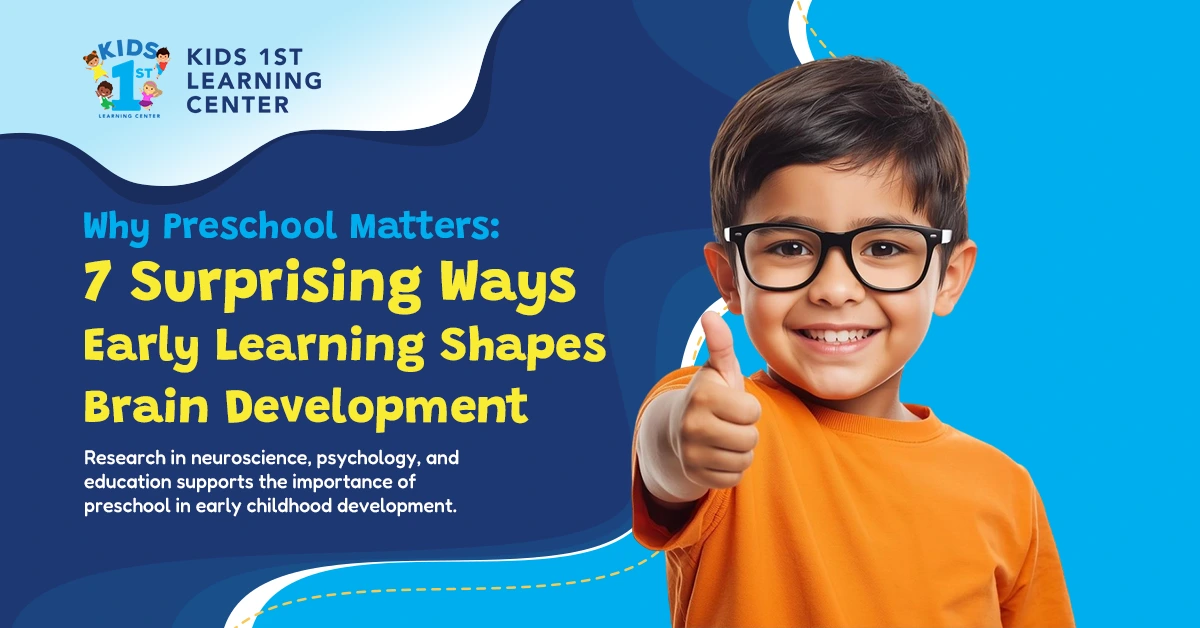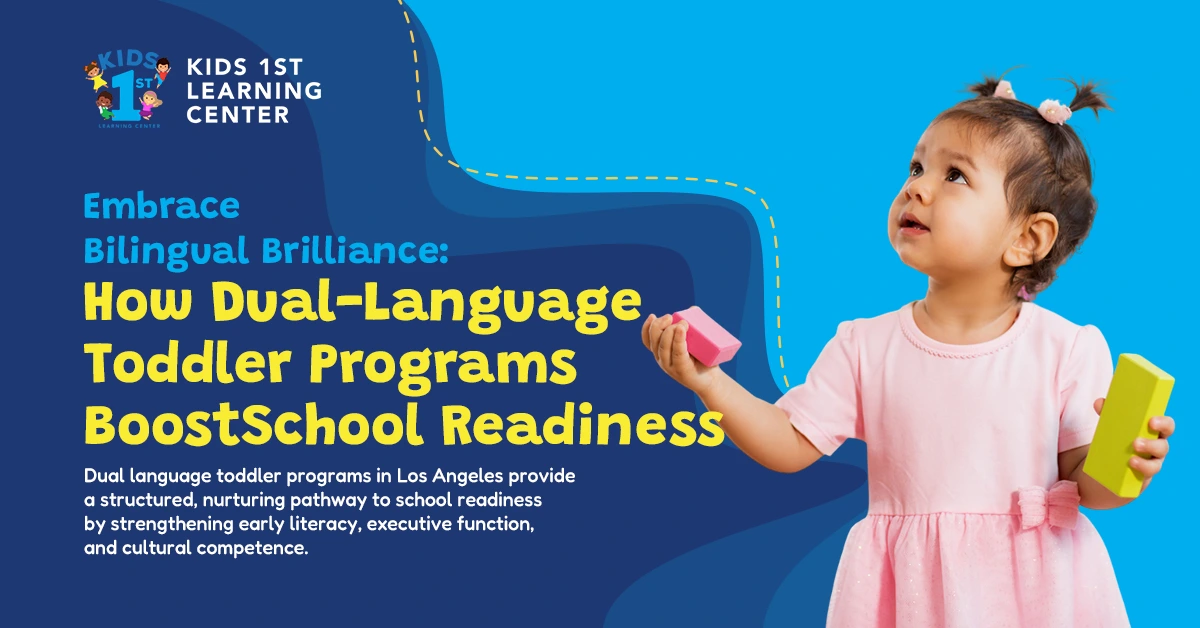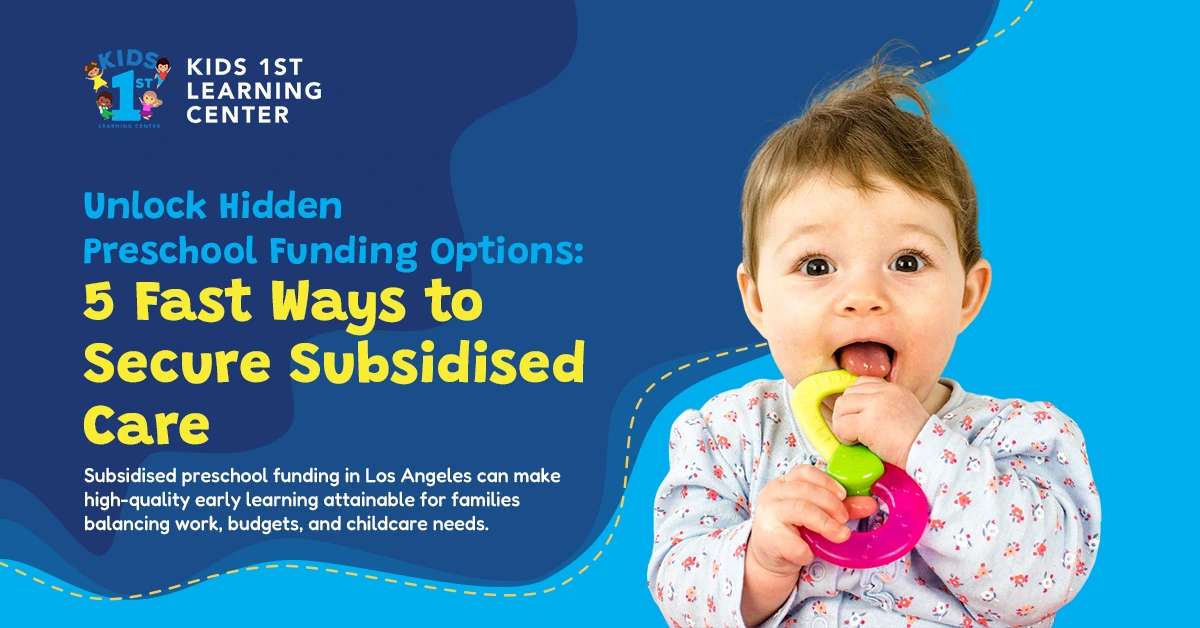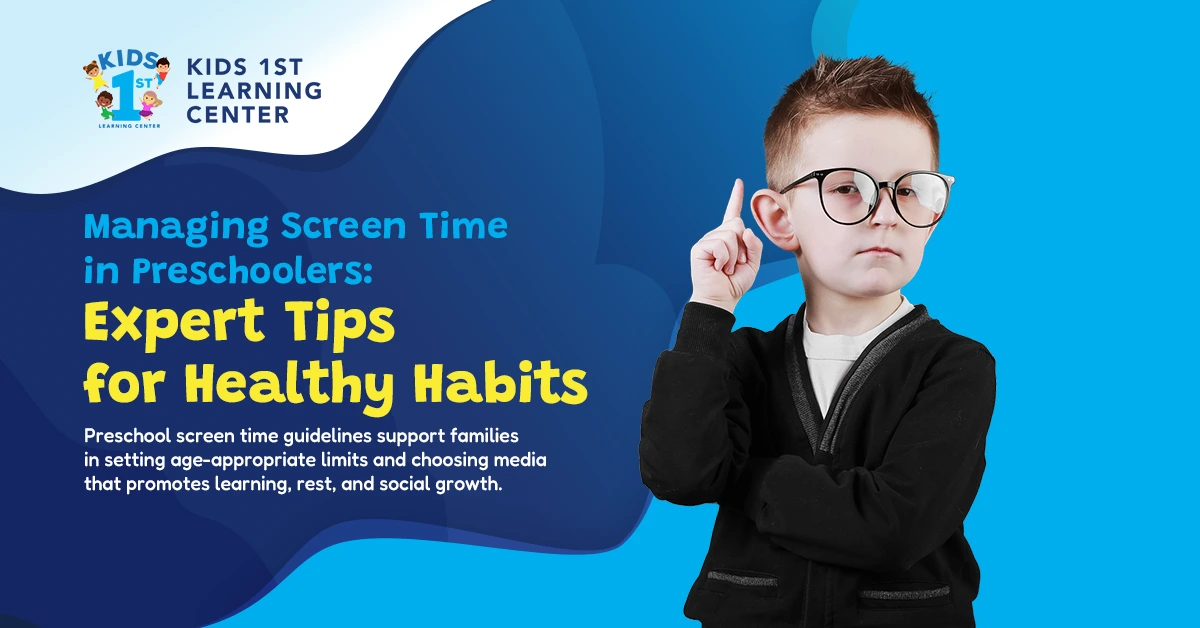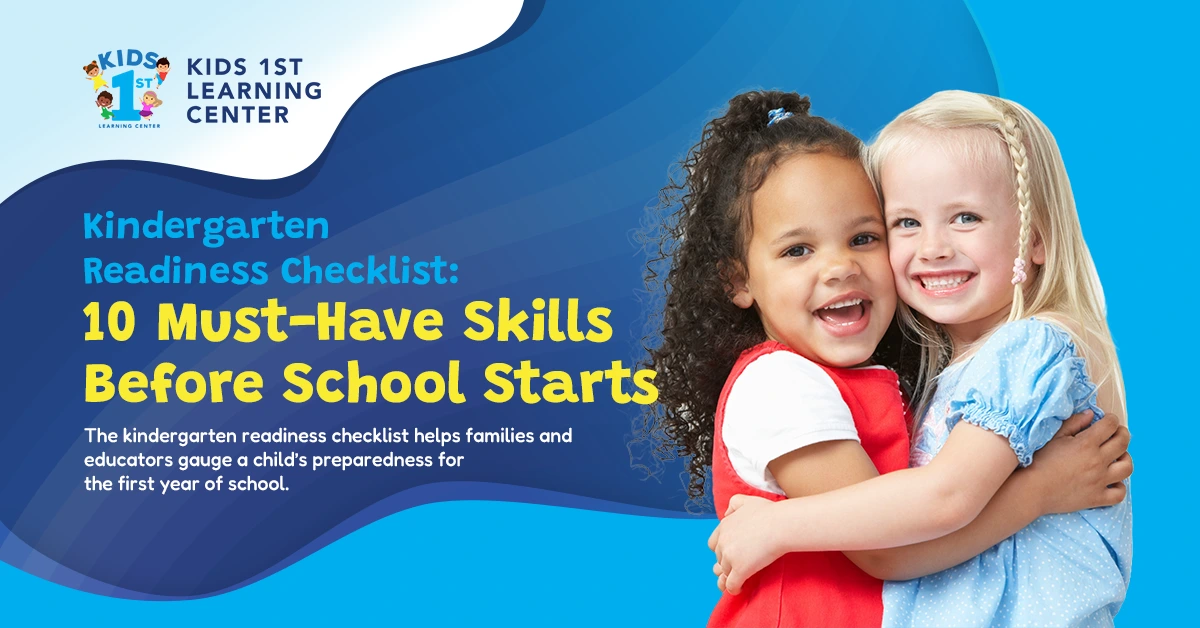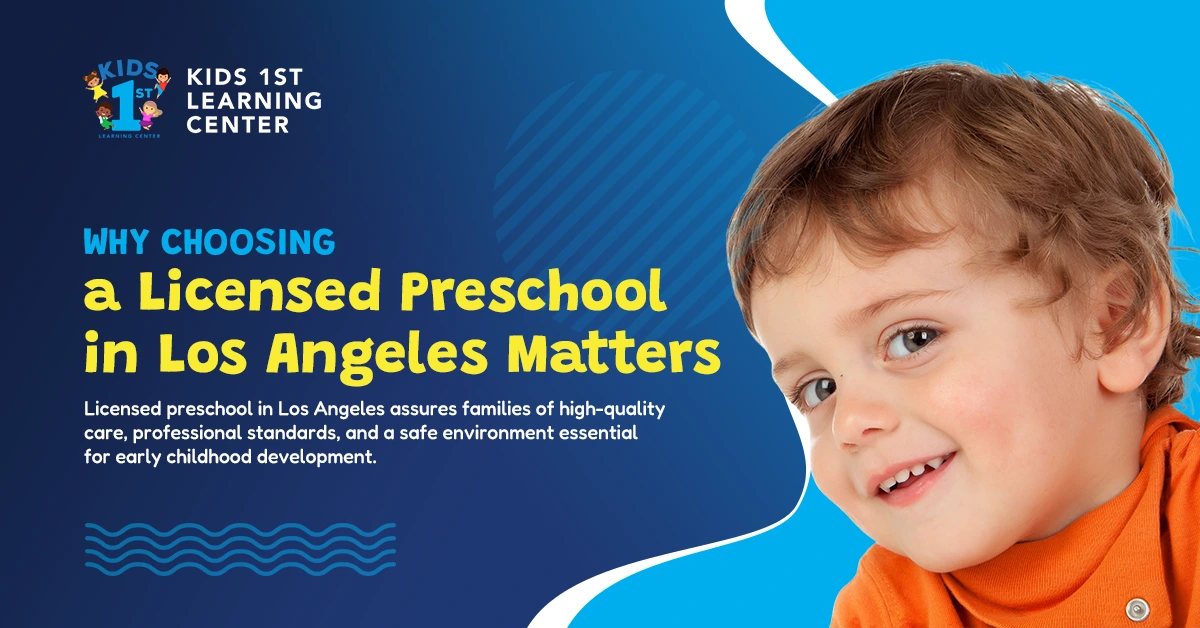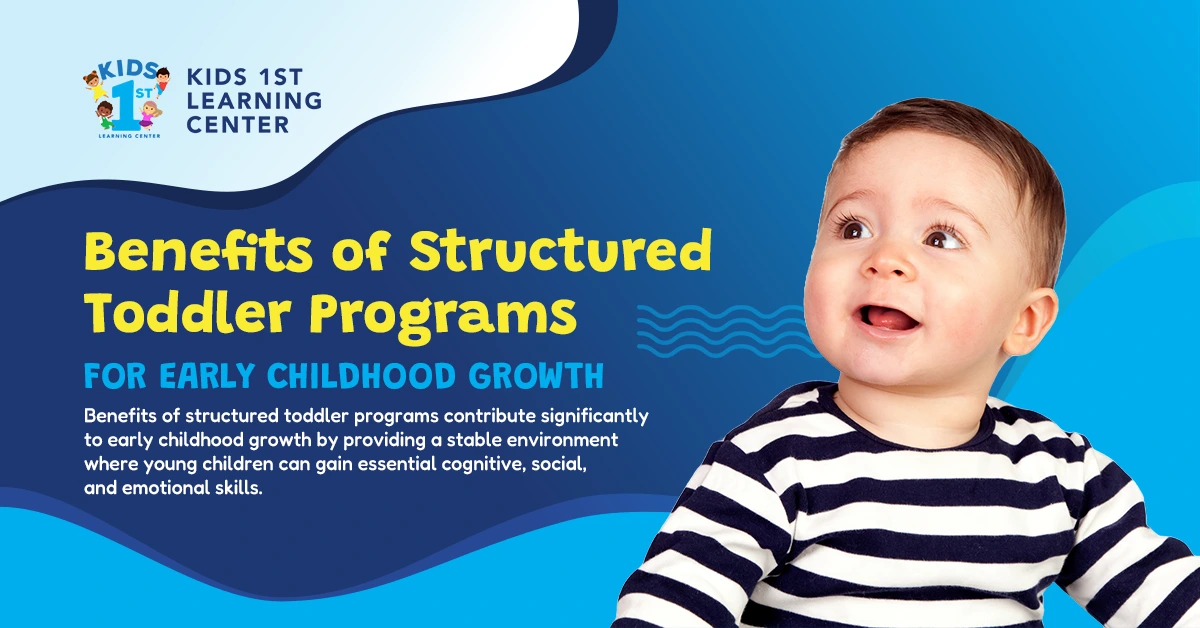Choosing an early learning centeris one of the most impactful choices parents can make for their child’s development. Young minds are eager to explore, absorb, and grow in these foundational years. Early learning centers are designed to nurture this natural curiosity, providing a structured yet vibrant environmentthat fosters social, emotional, and academic growth.
Through engaging activities and play-based learning, children develop essential skills and gain the confidence and independence that set the stage for lifelong success. Enrolling your child in an early learning center offers them a head start in an enriching, supportive setting where they can flourish with peers, guided by experienced educators dedicated to every child’s growth and well-being.
Finding the Right Fit: Exploring Preschool Programs Near Me
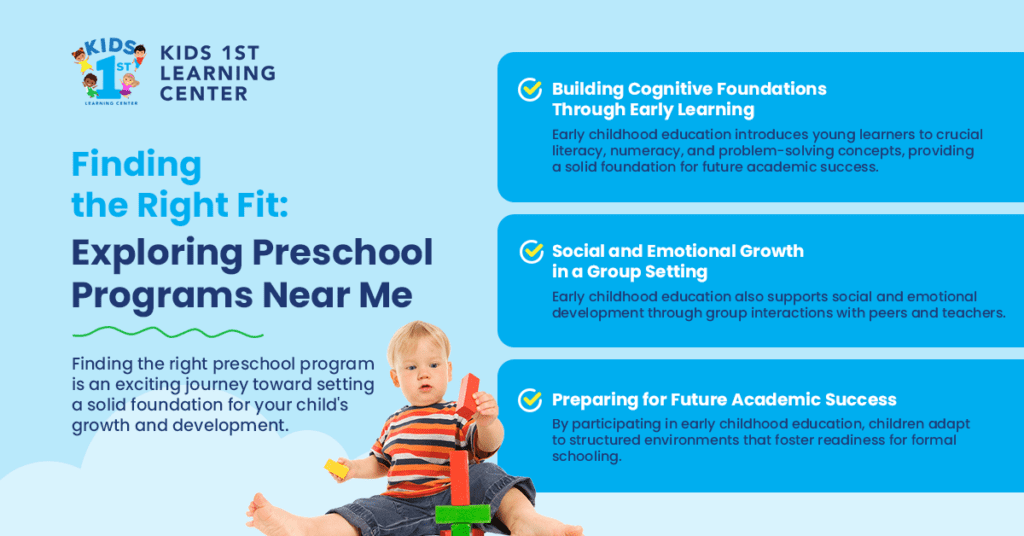
Finding the right preschool program is an exciting journey toward setting a solid foundation for your child’s growth and development. When searching for preschool programs near me, several important factorscan guide your decision, helping you find a programthat aligns with your family’s values and meets your child’s developmental needs. Below, we’llexplore the key considerations to remember as you embark on this crucial decision.
Convenience, Location, and Finding the Right Fit in Your Area
Choosing a preschool close to home or work is essential for a smooth daily routine, especially for families with busy schedules. Consider the program’s hours of operation, as flexibility can be a major perk for working parents.
Look for programs offering early drop-off or late pick-up options, which can provide flexibility and reduce the stress of managing tight schedules. When searching for preschool programs near me, keep the following in mind:
- Flexible Scheduling: Seek preschools that offer extended hours or flexible options that accommodate your daily routines.
- Proximity to Work or Home: The closer the preschool, the easier it is to handle commutes and potential emergencies.
- Transportation Options: Some preschools provide transportation, which can ease logistics if your schedule doesn’t allow frequent drop-offs.
Understanding Curriculum and Teaching Approaches to Align with Your Child's Learning Style
Not all preschools follow the same curriculum or teaching philosophy, and finding a program that aligns with your child’s natural learning style is vital. Some families may prefer play-based programs that nurture social and emotional skills, while others look for structured environments that introduce academic concepts.
Learn about popular curriculum approaches and ask about the program’s balance between structured activities and free play. Here’s a quick guide to the most common types:
- Montessori: Focuses on child-led, hands-on learning that encourages independence and choice.
- Reggio Emilia: Centers on self-directed, project-based activities that foster curiosity and creativity.
- Play-Based Learning: Emphasizes social development and emotional resilience through guided play activities.
Understanding each approach will help you select a program where your child can thrive.
Teacher Experience, Class Size, and a Safe, Stimulating Environment
A nurturing environment and experienced teachers are essential in creating positive early learning experiences. Smaller classes allow more one-on-one time with teachers, helping children build trust and connection with educators. Look for programs prioritizing staff training and providing safe, well-equipped classrooms that inspire exploration and curiosity. Key points to consider include:
- Teacher Qualifications: Ensure teachers are certified in early childhood education and receive ongoing professional development.
- Class Ratios: Smaller child-to-teacher ratios allow more individualized attention and meaningful interactions.
- Safety Standards: Confirm that the preschool has rigorous safety protocols, including regular health and sanitation checks, emergency procedures, and age-appropriate equipment.
Focusing on these elements can help you find a preschool that meets your family’s logistical needs and supports your child’s early educational journey in a safe and nurturing space.
The Role of Early Childhood Education in Child Development
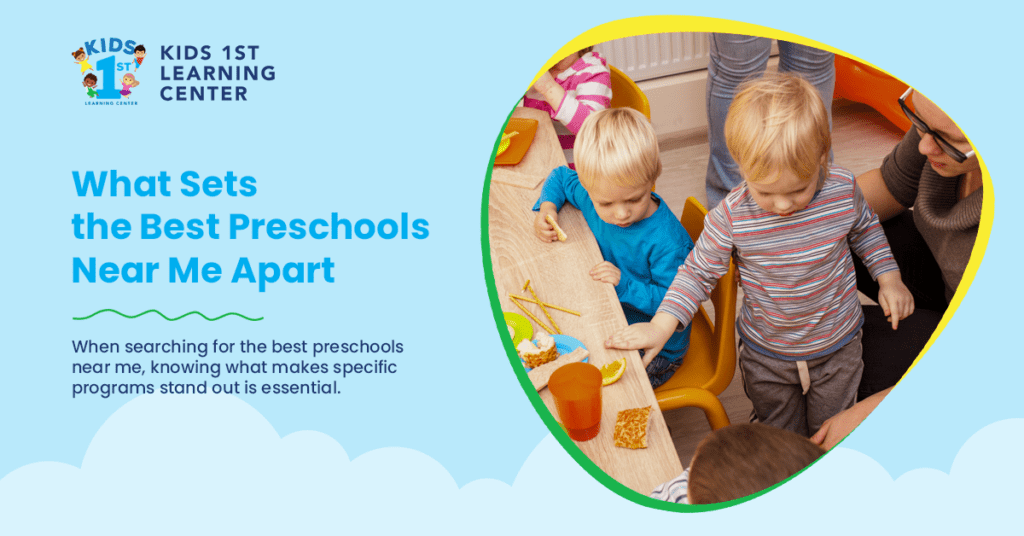
Early childhood educationis essential to a child’s cognitive, social, and emotional development. Through structured programs, young children build foundational skillsthat prepare them for school and foster essential life skills that support long-term success.
Building Cognitive Foundations Through Early Learning
Early childhood education introduces young learners to crucial literacy, numeracy, and problem-solving concepts, providing a solid foundation for future academic success. Play-based learning, a core approach, nurtures children’s curiosity while engaging them in cognitive skill-building activities. Here’s how specific areas of cognition are developed:
- Language and Literacy: Reading, singing, and storytelling activities help children recognize letters, sounds, and words.
- Math Readiness: Counting exercises and shape recognition introduce fundamental math concepts.
- Critical Thinking: Problem-solving tasks like puzzles encourage logical thinking and reasoning skills.
By establishing these cognitive foundations, early learning programs help children gain confidence in their abilities and foster a love for learning.
Social and Emotional Growth in a Group Setting
Early childhood education also supports social and emotional development through group interactions with peers and teachers. By learning to communicate, share, and build friendships, children gain essential interpersonal skills that will benefit them throughout life. In structured learning settings, children develop these skills through activities that emphasize:
- Cooperation and Sharing: Group exercises teach children to work together, share resources, and develop a sense of teamwork.
- Emotional Expression: Guided activities help children understand and express their emotions, building emotional intelligence.
- Independence and Confidence: Simple responsibilities like tidying up encourage self-sufficiency and confidence.
These social and emotional skills empower children to interact positively with others and develop resilience as they grow.
Preparing for Future Academic Success
By participating in early childhood education, children adapt to structured environments that foster readiness for formal schooling. The routines and activities help them become comfortable with daily schedules, following instructions, and completing tasks. Key areas that prepare them for future learning include:
- Routine and Structure: Children learn to follow daily routines, making the transition to school smoother.
- Self-Regulation: Managing impulses and staying focused are skills nurtured through structured activities.
- Curiosity and Enthusiasm for Learning: Early exploration fosters a love for learning that motivates children throughout their educational journey.
Early childhood education creates a well-rounded foundation for cognitive, social, and emotional growth. By focusing on these areas, parents can feel confident they’re giving their children the best start on their journey toward lifelong learning and success.
What Sets the Best Preschools Near Me Apart
When searching for the best preschools near me, knowing what makes specific programs stand out is essential. While many preschools offer primary care and foundational learning, the best preschools go above and beyond by providing an enriching, nurturing environment that caters to each child’s unique needs.
From dedicated, skilled teachers to thoughtfully designed curriculums, top-tier preschools prioritize quality in every aspect. Here, we’ll explore what sets these exceptional programs apart.
Qualified, Compassionate Educators Who Truly Care
One of the primary factors that distinguish the best preschools is the quality of their teaching staff. Experienced, caring teachersare more than just instructors; they are mentors who understand child development and know how to nurture young minds. Top preschools prioritize hiring educators who are well-trained in early childhood education and passionate about working with young children.
- Certified and Experienced: Teachers with early childhood education certifications have the expertise to support children’s growth.
- Ongoing Training: The best preschools invest in continuous professional development, keeping staff up-to-date on the latest teaching methods.
- Supportive and Engaging: Educators are patient and skilled in creating a positive, inclusive environment that encourages children to explore and learn.
A staff of well-qualified, compassionate teachers ensures each child receives the attention, guidance, and encouragement they need.
Engaging, Well-Rounded Curriculum that Fosters Holistic Growth
The curriculum is another vital aspect that sets the best preschools apart. Leading programs provide a well-rounded curriculum that balances academic knowledge with social, emotional, and physical development. Children are encouraged to explore their interests and build essential skills through hands-on activities, interactive learning, and play.
- Play-Based Learning: Structured play supports social skills, problem-solving, and creativity.
- Academic Readiness: Activities introduce literacy and math concepts in an age-appropriate way, preparing children for future schooling.
- Art and Physical Activities: Programs that include arts and physical play promote creativity, motor skills, and self-expression.
With a curriculum designed for holistic growth, children develop a strong foundation that nurtures curiosity, confidence, and resilience.
Safe, Inspiring Environment Designed for Exploration
A stimulating environment is crucial for fostering exploration and learning. The best preschools create clean, secure, and thoughtfully organized spaces to inspire children to discover new things daily. From age-appropriate play areas to well-equipped classrooms, these preschools prioritize safety and engagement.
- Clean and Organized: Classrooms are maintained to high cleanliness standards, with easy-to-navigate layouts that support independence.
- Age-Appropriate Materials: Learning materials, toys, and activities are carefully chosen to match developmental stages.
- Clear Safety Protocols: The best preschools implement strict safety measures, ensuring children’s well-being throughout the day.
A well-organized, inviting space makes children feel secure, helping them engage freely in learning and play.
Strong Community and Parent Involvement
Finally, a sense of community and active parent involvement are key components of the best preschools. These schools recognize that parents play an integral role in a child’s learning journey and create opportunities for them to participate in activities and communicate with teachers.
- Regular Communication: Frequent updates on each child’s progress keep parents informed and involved.
- Family Events: Open houses and family nights strengthen the preschool community.
- Collaborative Approach: Teachers encourage open communication with parents to align on goals and support each child’s growth.
This collaborative approach fosters a supportive setting where children thrive, parents feel valued, and everyone works together to ensure the best possible experience.
Conclusion
Choosing an early learning center is a decision that sets the stage for your child’s journey of discovery, growth, and lifelong learning. By prioritizing a nurturing environment, quality educators, and a well-rounded curriculum, you give your child an incredible foundation that fosters curiosity, confidence, and resilience. The best preschools do more than prepare children for school—they inspire a love for learning that can positively shape their futures.
Ready to take the first step? Discover what makes Kids 1st the ideal choice for your family. Reach out today at (818) 873-0133 or visit us at Kids 1st Contact Pageto learn more and schedule a visit. We’re excited to welcome you and your child into the Kids 1st family!

